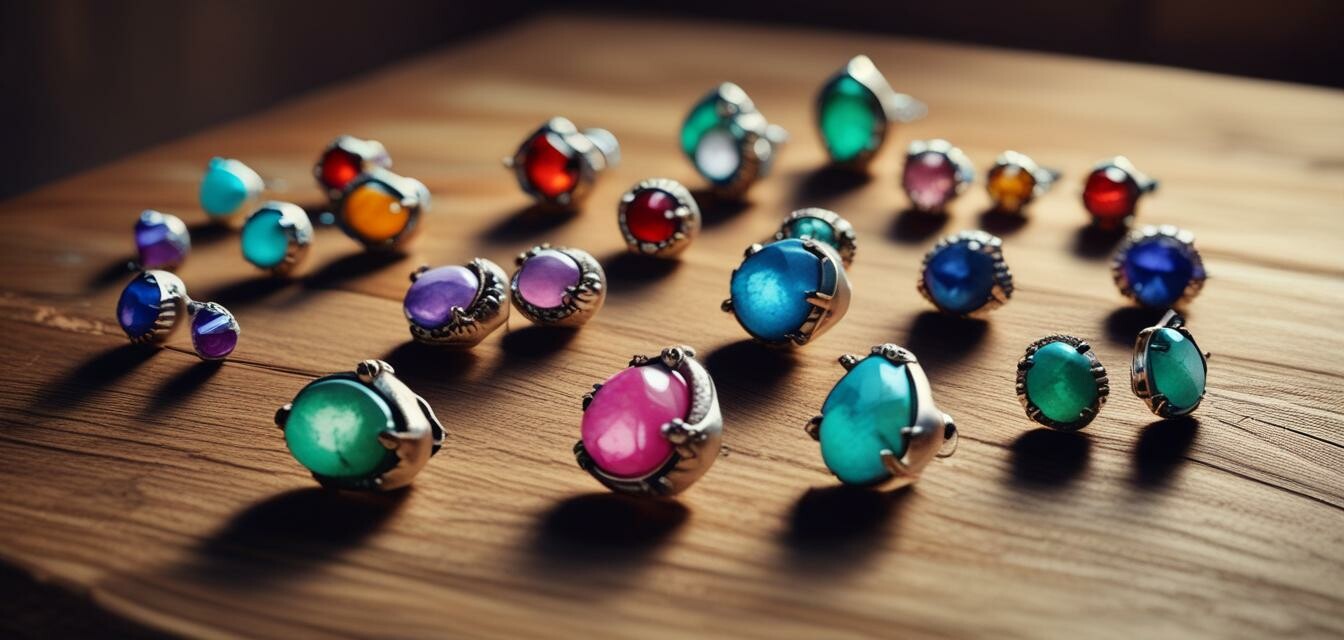
Responsible Consumerism: Buying Ethical Jewelry
Key Takeaways
- Responsible consumerism promotes ethical purchasing practices.
- Understanding sourcing helps consumers make informed choices.
- Supporting artisans enhances local communities and the environment.
- Certifications can guide consumers towards sustainable products.
- Awareness of the impact of jewelry production is crucial for eco-consciousness.
Responsible consumerism is more than just a trend; it's a conscious way of living that embraces sustainability and ethical practices in every purchase. When it comes to jewelry, understanding how your choices affect the environment and communities is paramount. This article will guide you through the principles of responsible consumerism and highlight how you can make informed, ethical decisions while purchasing beautiful gemstone jewelry.
What is responsible consumerism?
Responsible consumerism refers to the practice of making purchasing decisions that consider ethical, social, and environmental impacts. It encourages consumers to think about the consequences of their spending habits. In the realm of jewelry, this means opting for products that are sustainably sourced, ethically produced, and beneficial to local artisans.
The importance of ethical sourcing
When purchasing jewelry, understanding the concept of ethical sourcing is essential. Ethical sourcing ensures that the materials used in creating jewelry are obtained in a responsible manner, benefiting both the environment and the communities involved in the production process.
Key aspects of ethical sourcing
- Environmental impact: Sustainable practices minimize harm to ecosystems and reduce waste.
- Fair labor practices: Ensuring artisans are compensated fairly and work in safe conditions.
- Community empowerment: Supporting local economies through ethical purchasing contributes to community development.
How to buy ethical jewelry
To make responsible choices when buying jewelry, consider the following steps:
- Research brands: Look for brands committed to ethical practices.
- Check certifications: Look for certifications that denote sustainable practices.
- Support artisans: Purchase from artisans who prioritize ethical sourcing.
- Consider the materials: Choose jewelry made from recycled or sustainably sourced materials.
- Inform others: Share your knowledge about ethical jewelry with friends and family.
Understanding certifications
Certifications can help consumers identify truly ethical products. Below is a table showcasing common certifications to look for when buying ethical jewelry:
| Certification | Description |
|---|---|
| Fair Trade | Ensures fair wages and safe working conditions for artisans. |
| Global Recycle Standard | Certifies products made from recycled materials. |
| Responsible Jewellery Council | Promotes ethical and sustainable practices in the jewelry supply chain. |
| GIA (Gemological Institute of America) | Provides certification for the quality and ethical sourcing of gemstones. |
Impact on artisans and communities
Purchasing ethical jewelry directly supports artisans and their communities. Many artisans rely on the income generated from their handmade jewelry to sustain their livelihoods. By choosing ethical options, consumers can empower these individuals and help to preserve traditional craftsmanship.
Pros
- Promotes ethical labor practices
- Supports local artisans and communities
- Minimizes environmental impact
- Encourages responsible consumption
Cons
- Potentially higher prices
- Limited availability in some regions
- Difficulty in verifying claims
Conclusion
Responsible consumerism is a powerful way to make a positive impact through your purchasing decisions. By buying ethical jewelry, you support sustainable practices that benefit both the environment and the artisans who create beautiful, handcrafted pieces. As you shop for gemstone jewelry, remember the principles of ethical sourcing and strive to make informed choices that resonate with your values.
Tips for beginners
- Start small: Begin by replacing one or two non-ethical pieces with ethical alternatives.
- Educate yourself: Stay informed on the latest sustainability practices in the jewelry industry.
- Ask questions: Don’t hesitate to inquire about the sourcing and production practices of your favorite brands.
- Visit local markets: Explore local artisan markets to discover unique, ethically sourced jewelry.
Further resources
To dive deeper into ethical jewelry and responsible consumerism, check out our other articles: